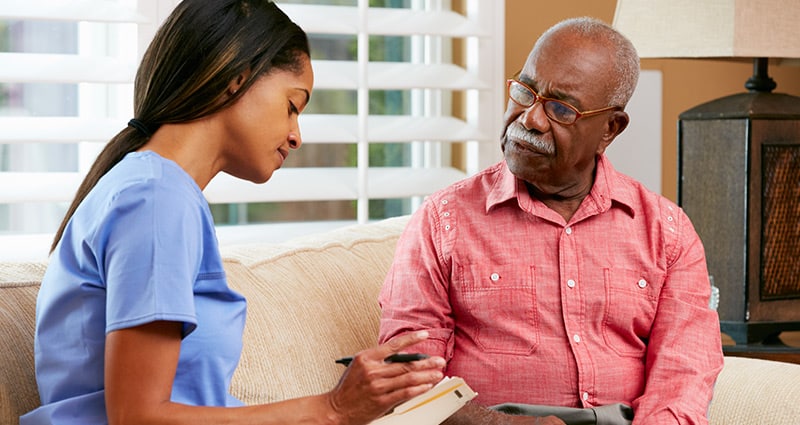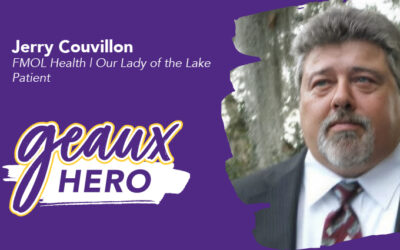When a patient at Our Lady of the Angels Health sees Kaitlyn Ladner, MD, they are getting a medical professional with a fresh set of eyes on healthcare. And they have the benefit of a little more time with someone actively involved in their care to share their story and be heard.
That, as Dr. Ladner says, is the real benefit of the program she’ll soon be graduating this summer: the LSU Rural Family Medicine Residency Program at Our Lady of the Angels Hospital in Bogalusa.
Dr. Ladner is the co-chief resident in the program, which supports vulnerable populations in the Washington Parish area — people who have poor access to care because of income and social inequality as well as geography. The residency program puts around 18 residents at a time into the hospital setting to train them in nearly every service offered from primary care to pediatric care to the emergency department.
“I think this place really trains us for what to expect and to consider the full spectrum of healthcare,” says Dr. Ladner, who grew up nearby in the Mandeville-Covington area. “Bogalusa is so underserved, and we are essentially the life source for healthcare here.”
Our Lady of the Angels Hospital in Bogalusa is the only full-service acute care hospital within a 45-minute drive, and the rural residency program is the only one of its kind in the state.
David Mohr, MD, associate program director, says Our Lady of the Angels has been able to attract high-quality residents who want to be trained to do almost everything.
“A rural setting gives us an opportunity because there are relatively few specialists who come up here and who are working here,” Dr. Mohr says. “Our residents are learning to do more than a typical resident would.”
Residents Help Expand a Patient’s Care Team
Dr. Mohr says the value for the patient is just as important as the value for the residents. While some patients may be apprehensive that their care team includes doctors “in training,” Dr. Mohr says residents contribute to a better overall care experience for patients.
“They probably get better care than in a lot of other settings. Our residents are always supervised by someone with better training. Sometimes I wished I had someone looking over my shoulder in the early days of my practice,” he says. “They are also closest to the most recent research out there. They are coming into the healthcare setting working for the first time with drugs I would consider new drugs. That state-of-the-art care is the only thing they know.”
The talent level in the rural residency program is also exceptionally high. According to Dr. Mohr, 100% of graduates from the program have passed their boards and are now Board Certified physicians. Our Lady of the Angels also currently employs five family medicine doctors who graduated from the program (read about one of those former residents), which shows that these trainees aren’t just moving on once they have gained experience — they continue to work in the community.
Residents Form Connections with the Community
For Dr. Ladner, she intends to stay in the Northshore area once she finishes her residency this summer and work in the clinic setting in family medicine.
“It’s mainly about the continuity of care for me,” she says. “I like the idea of being able to take care of a patient from the cradle to the grave — delivering babies and caring for them into adulthood and ultimately working with the geriatric population.”
She has gotten a lot of that experience already through the rural residency program. One of her favorite aspects has been the outreach and education-focused mission of Our Lady of the Angels, including a regular health-focused farmers market in front of the hospital. Health literacy is a big part of that event.
“With this patient population, we’re working with people with lower health outcomes who need education to help them make better decisions about their care,” Dr. Ladner says. “We are there to make sure they understand exactly what is going on in their bodies, and medications and procedures we use to help treat them. But health literacy is also about prevention — making sure they are up to date on screenings, making good dietary choices and that they understand the resources available to them here.”
Dr. Mohr says outreach to the community and the lasting relationships the residents make with patients in Bogalusa help illustrate the importance of the rural residency program to the region.
“I think that says we’re fulfilling our mission,” Dr. Mohr says. “We want to develop well-trained physicians to serve the rural areas of Louisiana.”




